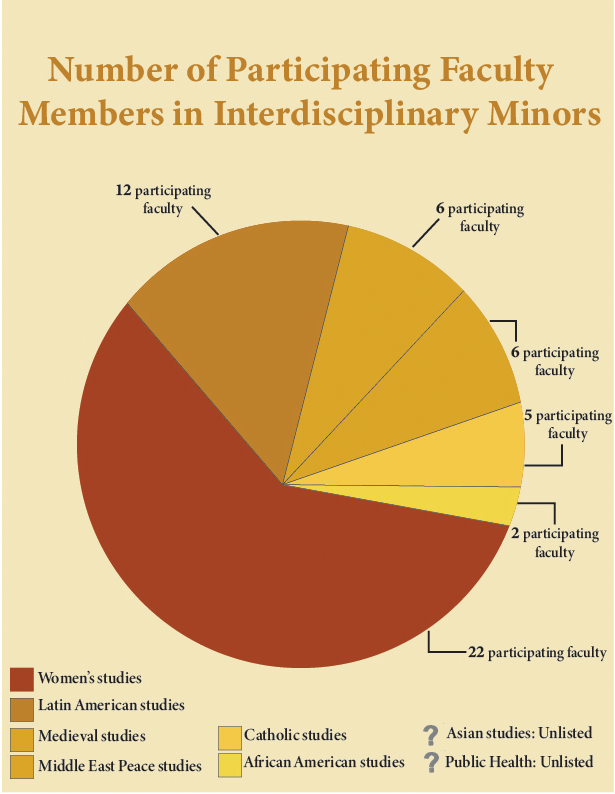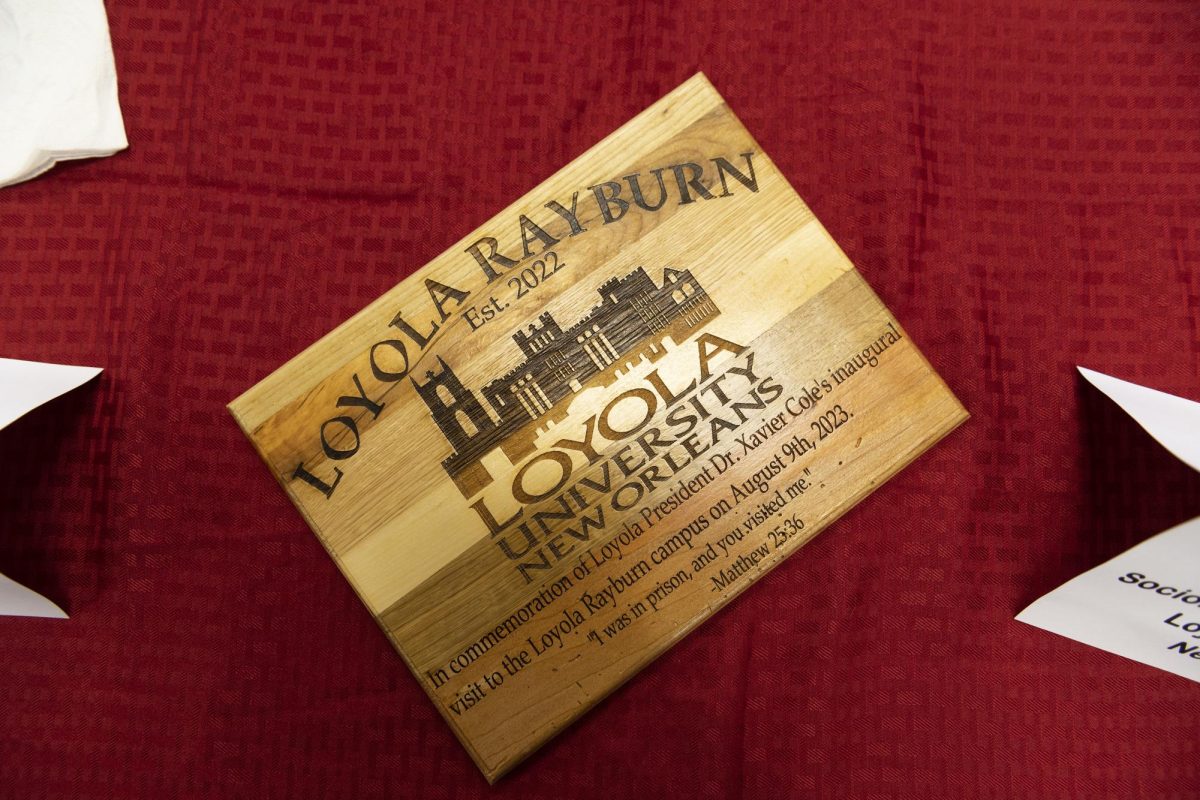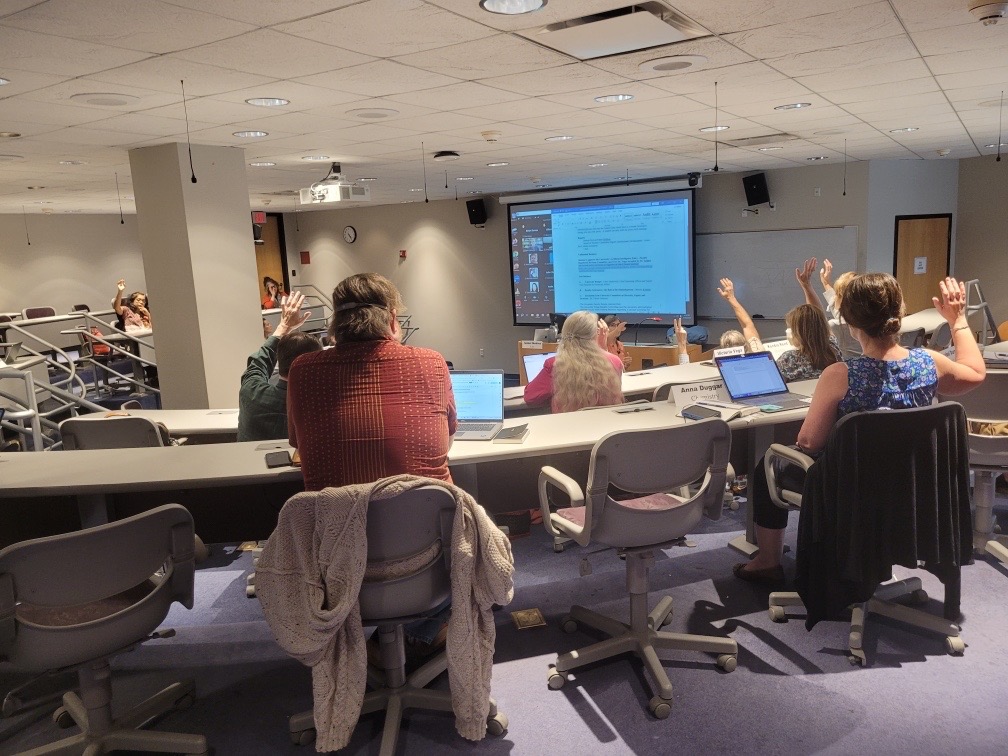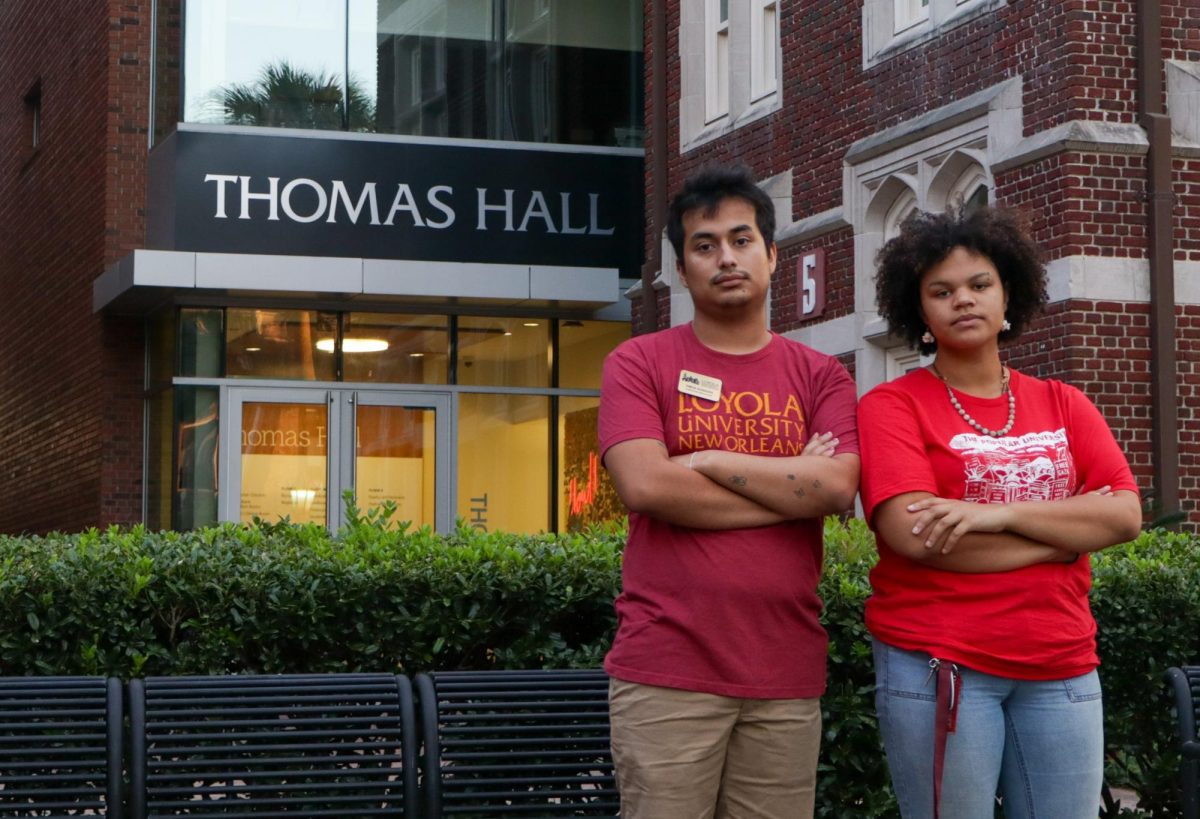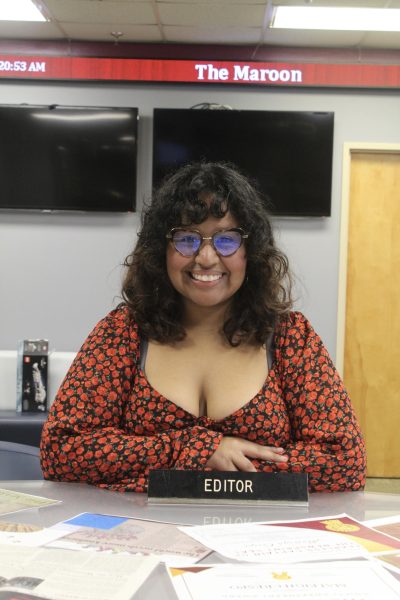Recent Loyola graduate Brendan Heffernan said he was drawn to Loyola for its diverse course offerings and liberal arts education. However, looking back on his college career, he said the humanities were underserved, and “a little disappointing.”
Heffernan wanted to pursue an interdisciplinary minor in African-American studies, but said it was too difficult due to the lack of course offerings.
Course offerings are planned and scheduled by departments, not the directors of interdisciplinary minor programs, according to university spokesperson Rachel Hoormann.
Currently, Loyola offers 10 interdisciplinary minors; however, many of them lack search options and information availability on the website and on LORA self-service, Loyola’s online records system, for students to find.
For the fall 2023 semester, there are two African-American studies classes being offered, according to LORA self-service.
Most interdisciplinary minors require up to 21 credit hours to complete the program.
“There’s a much greater demand than there is availability for a lot of cultural studies courses, so it was very difficult to have a minor in that,” Heffernan said. “I just think that there weren’t enough classes to properly serve people interested in pursuing that.”
Heffernan attributes the lack of diversity in minor studies courses to limited faculty.
“There’s a limited amount of tenured opportunities, specifically in the humanities,” Heffernan said. “And our compensation for humanities professors is well below average, even compared to schools that are at a similar size to us.”
Psychology senior Akilah Toney also wanted to pursue a minor in African-American studies, but said she was dissatisfied with what the minor offered, so she settled on only taking a few classes within the minor instead.
Toney said the discrepancies in support among interdisciplinary minors shows where the university’s priorities lie.
“The [African-American studies] minor deserves just as much attention, care, prioritization, funding, professors, and education as any other minor program at Loyola,” she said. “It’s just as significant and important because we need students to have a diverse learning experience in the classroom.”
There are students who are invested in learning about African-American experiences and cultures – students who aren’t even African-American, Toney said.
“We don’t deserve courses just put on LORA to fulfill a credit,” she said. “People deserve to feel seen, heard, and to have the opportunity to learn about experiences that are outside of themselves.”
Mass communication senior and women’s studies minor Domonique Tolliver said the women’s studies minor has variety in course offerings, yet no one is teaching them.
While the women’s studies minor has 22 participating faculty members, that is not indicative of the number of courses likely offered. Hoormann said that membership on these committees is voluntary and that program directors are responsible for recruiting faculty. And serving as a committee member is not a necessary condition of offering courses that count as part of a specific minor.
Heffernan said that not only is there a lack of courses to get credits for your degree, but there’s also a lack of depth and focus in some of the classes.
Medieval studies program director Alice Clark said that interdisciplinary minors faculty are individually and collectively spread thin.
“There’s not a lot we can do without much support, and we’re all doing the best we can,” she said.
Program directors don’t have much pull, and interdisciplinary studies minors rely heavily on Loyola Core and other courses that are offered regularly, Clark said.
Clark said she has never been able to offer many courses that fit the Medieval Studies minor because courses required for majors have been needed.
“It’s easy to say that more money would solve everything, but it’s not that simple, and it’s not going to happen,” she said. “In the end, those of us who are part of interdisciplinary programs continue to offer a range of courses that will fit all our programs and provide student choice and flexibility as best we can with what we’ve got because we believe those connections across disciplinary boundaries makes our own work, and our students’ experience, richer.”
The most effective directors of interdisciplinary minors collaborate with departments to ensure that there are enough courses for the students in their programs, according to Hoormann.
She also said the women’s studies program, which is offering eight courses in the fall, is a great example.
Still, Tolliver believes the women’s studies program has room for improvement.
“There’s gender studies departments across the country that are powerful. They reach across campus, they connect students, and I feel like we’re trying to get there,” she said. “We have ideas and plans, but they haven’t actually been implemented, so they aren’t attracting as many students or incoming students as they can be. But I think that if they strengthen the department, they’ll definitely strengthen the diverse people who want to come here.”
Hoormann said diversity, equity, and inclusion are central values of the College of Arts and Sciences and Loyola University as a whole and that both the college and the university have made great efforts to recruit and retain more faculty of color.
“We can have a commitment to Jesuit values, equity, and inclusion, but it’s not helpful if it’s only displayed on a website, if it’s not implemented in proper faculty, proper courses,” Toney said.
In the English department, tenure-track candidates in the fields of hemispheric American/Latinx literature and African-American literature are being evaluated, according to an email sent by English professor Hillary Eklund. This evaluation process comes in the midst of the controversy regarding professor and African-American studies program director Scott Heath’s tenure.
Toney said while she appreciates the effort and would never dispute adding more diverse faculty members, departments need more than placeholder classes and professors.
“It’s still not enough when we still might have only one Black person in the entire English department,” she said.
The African-American studies minor currently does not have a program director after it was determined Heath would not be reinstated, leaving only 2 participating faculty members, neither of which are Black.
Heffernan said that recognizing the demand for cultural studies, even for students who don’t necessarily want the minor, is the first step to addressing the issues in the programs.
“I’m sure they have other metrics to decide these things, but from my perspective, there is a really strong demand for a better-supported framework of different cultural studies,” he said.


